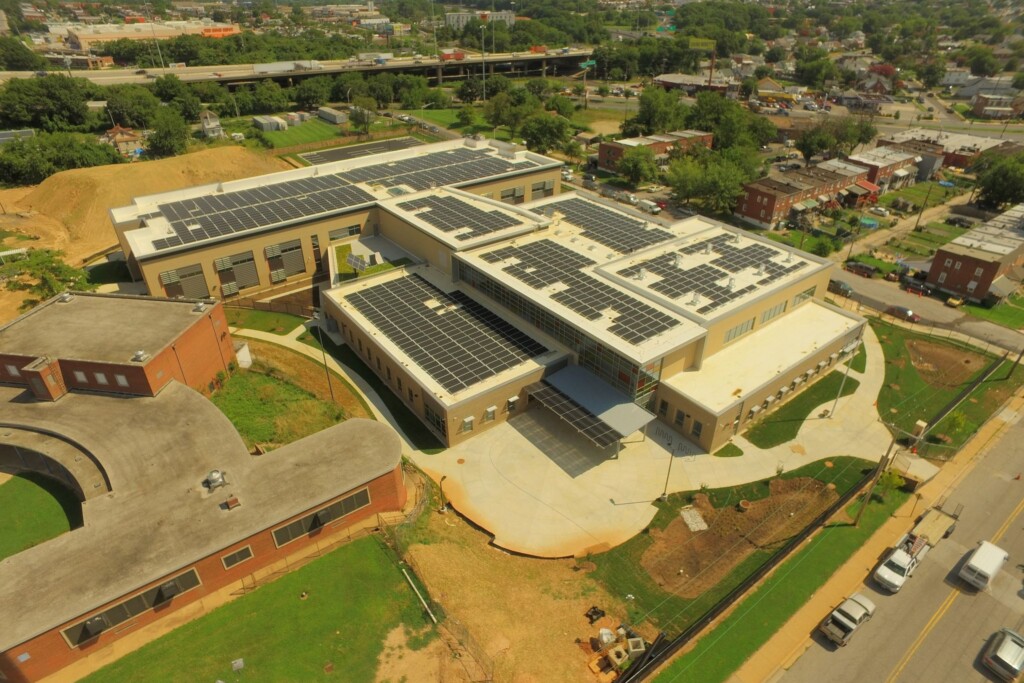[ad_1]

By John King
The writer is a former U.S. secretary of education and a 2022 Democratic candidate for governor.
The new Intergovernmental Panel on Climate Change (IPCC) report, released last week, is a horrifying indictment of our lack of urgency in responding to climate change. As the father of two daughters who will see these devastating impacts in their lifetimes, I worry about the future we will be sending our children into if we fail to take clear, purposeful action. However, I am also hopeful that we can still slow the effects of climate change and mitigate the most serious threats it poses. The IPCC report makes it clear that we are reaching the point of no return. But it’s not too late — yet.
As we in Maryland grapple with the implications of climate change in our own communities — from air pollution in Baltimore to sea level rise near the Bay to losing farmland to saltwater intrusion — we need to re-envision our future so that we are not just fighting the climate crisis but are transforming Maryland into a national leader in clean energy and building a thriving green economy.
I am excited to see that the Maryland legislature is taking a step in the right direction by considering a new bill — House Bill 1290 — introduced by Appropriations Committee Chair Maggie McIntosh (D-Baltimore City). Chair McIntosh has frequently been at the forefront of important fights that will directly affect our children’s future, and this latest bill is another example of her leadership.
HB 1290, a proposed school construction bill, will build upon the work of the Built to Learn Act by investing in the creation of net-zero schools and giving the Interagency Commission on School Construction the responsibility to annually inspect and report schools for health and safety issues, including lead paint, asbestos hazards, and air quality (including carbon dioxide pollutants). This will all be critical in ensuring that our schools are energy efficient and that the air our children breathe is clean and healthy.
This proposed legislation would help address the high rates of childhood asthma in Baltimore City — double the national average — in turn helping reduce chronic absenteeism. It would also help ensure broken and inefficient air conditioning systems are fixed. In recent years we’ve seen over 30 Baltimore City schools temporarily close as a result of heat waves coupled with insufficient air conditioning. As a teacher myself, I know that giving students the tools they need to succeed includes giving them a classroom environment that is conducive to learning. That’s why clean air and working air conditioning is so necessary — our students’ educational progress is thwarted when their basic needs aren’t being met in the classroom.
As the co-chair of the national K-12 Climate Action Commission — composed of national leaders on the environment, education, and civil rights — I am particularly excited to see that HB 1290 would help in funding the creation of additional net-zero school buildings. We already have built three net-zero schools: two in Baltimore City and one in Howard County. These net-zero and net-zero-ready school buildings cost no more than conventional school buildings to construct, create a much healthier environment for students, and they end up being cheaper in the long run thanks to their energy efficiency. Given that buildings are the cause of 40% of Maryland’s greenhouse gas emissions, our state’s 1,400 schools must be a part of the work we do to reduce emissions — and building net-zero schools will be a key part of that.
Of course, HB 1290 alone will not end climate change. But it is an important step in the right direction. And our children deserve to go to school in clean, healthy, and environmentally sustainable buildings.
By passing HB 1290 along with other bills being considered this session — such as replacing diesel school buses with electric buses, making our universities carbon neutral, and school composting — we can make a difference in Maryland’s future and become a national leader in sustainable education practices.



